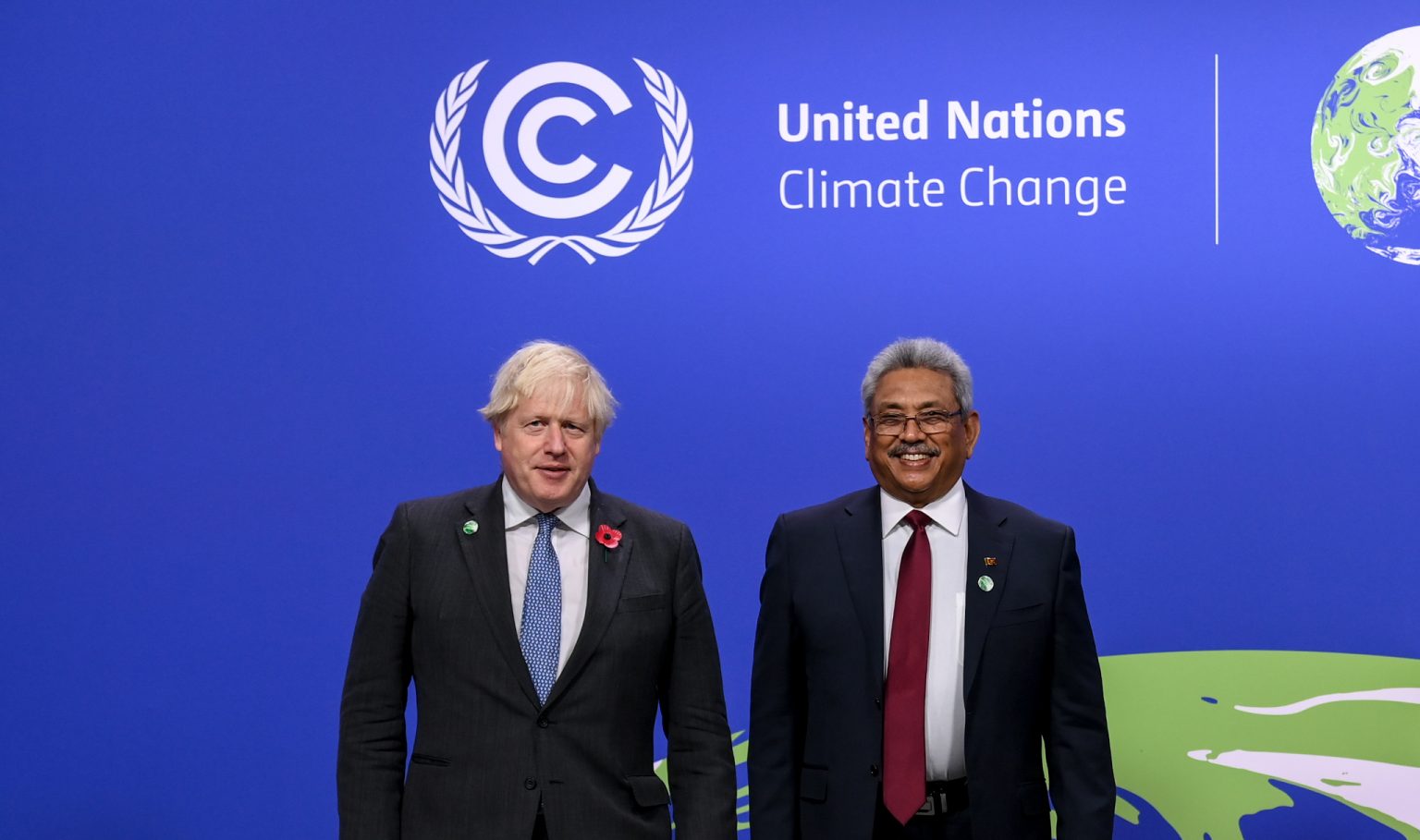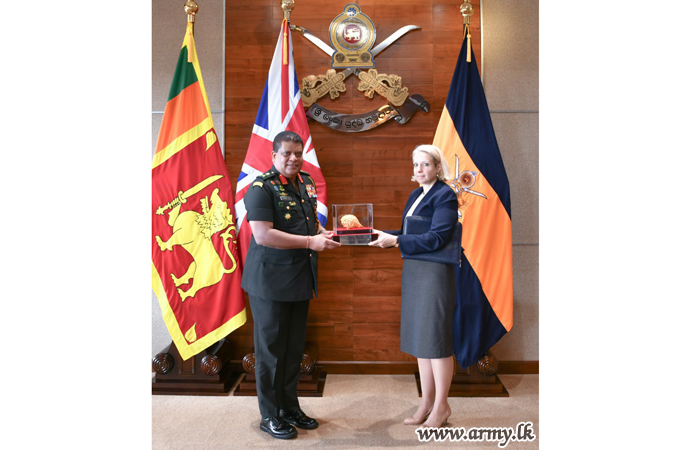
British Prime Minister with Sri Lanka's President
Writing in Declassified UK, Archana Ravichandradeva and Sutharshan Sukumaran warm against Sri Lanka's efforts to pave out its appalling human rights record with the language of environmental stewardship and urge the UK to "redouble its commitment to accountability, justice and a political solution that resolves the ethnic conflict in Sri Lanka".
"A sustainable path towards a climate-resilient future for the island requires the structural causes of instability and ethnic conflict to first be addressed [...] Only when such peace and protection for human rights are achieved can there be true justice, including climate justice, in Sri Lanka. " they write.
The UK's silence on human rights in Sri Lanka
![]()
UK Foreign Secretary meeting with Sri Lanka's Foreign Secretary
In their piece, they highlight that top Sri Lankan officials are in the UK on a charm offensive to improve bilateral relations and secure a trade agreement with the UK. They further note concerns that a post-Brexit Britain would shirk the "human rights frameworks that were in place whilst the UK was in the EU".
In July the UK Foreign Office reported that they had not undertaken a human rights assessment of Sri Lanka's compliance with human rights in its trade agreements. Following months of pressure, Britain's minister for South Asia, Tariq Ahmad, claimed that future agreements with Sri Lanka would be reliant upon Sri Lanka delivering on its human rights commitments.
However, in advance of President Rajapaksa's visit, Sri Lanka’s foreign minister, GL Peiris, met Britain’s trade secretary Liz Truss. The meeting was met with condemnation from British MPs who highlighted that issues surrounding human rights were not raised. The UK remains one of Sri Lanka’s major export markets.
Britain's complicity with the Sri Lanka regime is further demonstrated by repeatedly ignoring calls to impose sanctions on notorious Sri Lanka war criminals such as Shavendra Silva, who led the 58th Division of Sri Lanka's army during the final stage of the armed conflict. Silva is charged with coordinating the indiscriminate shelling of hospitals, summary execution of surrendees, and enabling the use of torture and sexual violence against the Tamil population. An estimated 140,000 Tamils were slaughtered during the final stages of the conflict leading activists to accuse the Rajapaksa regime of committing genocide. Silva is currently the head of Sri Lanka's army.
Endorsing militarisation

British High Commissioner meeting with Sri Lankan army commander Shavendra Silva
The article further details how Police Scotland's long-standing training programme of police departments such as the Sri Lankan Special Task Force (STF) has further bolstered militarisation on the island. The STF has been implicated in numerous atrocities including abductions, extrajudicial killings, and torture.
They note that whilst Police Scotland's training has been temporarily paused the government has not scrapped its contract.
"Decades of Western support for the country’s security apparatus has done little to stop abuses against Tamils" they add.
Instead, they urged the UK to "heed requests from victim communities, NGOs and the UN human rights council (UNHRC) for targeted sanctions on military officials implicated in war crimes and mass atrocities".
The authors further encourage the UK to "leverage its bilateral relations to apply pressure on Sri Lanka to make the structural reforms required for long term stability on the island".
Read the full piece here.
